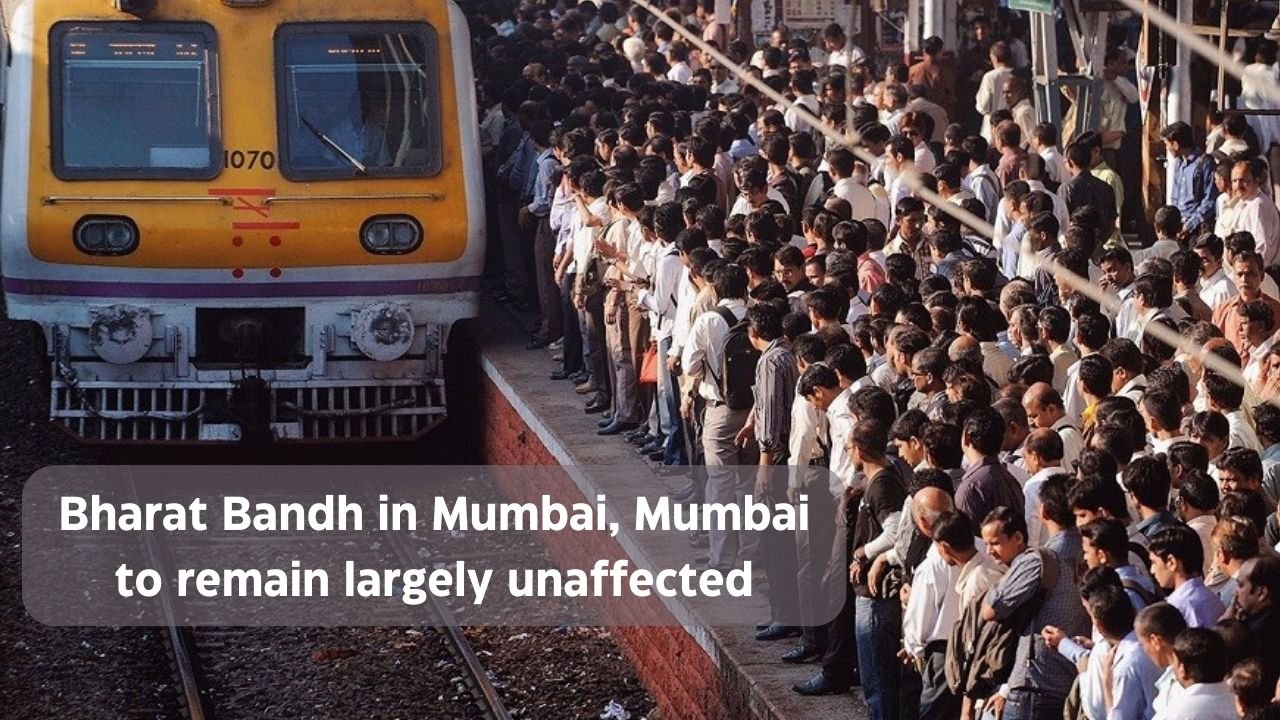Bharat Bandh Impact In Mumbai, Mumbai to remain largely unaffected, Mumbai, being an urban center, sees minimal activism from farmer organizations.
As the call for Bharat Bandh resonates across the nation, Maharashtra, a key player in the agricultural landscape, faces a crucial juncture. With 42 organizations pledging participation and political entities contemplating support, the implications for the state, especially Mumbai and the Mumbai Metropolitan Region (MMR), hang in the balance.
Maharashtra Kisan Sabha Leader Rajan Kshirsagar asserts the participation of 42 organizations from various regions in the bandh. The diverse alliance includes political parties associated with farmer organizations within the INDIA alliance.
Shiv Sena leader and MLC Sachin Ahir express moral support for the Bharat Bandh. However, official communication regarding support is still pending. Police indicate the absence of advisory for the city regarding the bandh.
Bharat Bandh in Mumbai: The Current Landscape
Mumbai and MMR might remain largely unaffected by the Bharat Bandh. The lack of clear support from political parties in Maharashtra contributes to the uncertainty.
Mumbai, being an urban center, sees minimal activism from farmer organizations. The bandh’s impact is expected to be more pronounced in rural pockets, contingent on the backing from farmer associations in the state’s interiors.

Nationwide Agitation: Gramin Bharat Bandh
Multiple agricultural unions, notably the Samyukta Kisan Morcha (SKM), have announced a nationwide strike called the ‘Gramin Bharat Bandh.’ The objective is to underline the demands presented to the central government.
SKM appeals to like-minded farmer organizations to join forces in this agrarian protest. The Gramin Bharat Bandh aligns with the concurrent call by central trade unions, creating a unified front in the farmers’ agitation.
Uncertainties in Maharashtra: Mumbai’s Urban Shield?
Maharashtra’s political landscape remains uncertain about unequivocal support for the bandh. This ambiguity raises questions about the extent of the bandh’s impact, especially in urban centers like Mumbai.
While urban areas may see minimal disruption, certain rural pockets might observe the bandh if it garners support from farmer organizations embedded in the state’s interiors.
As Maharashtra navigates the complexities of the Bharat Bandh, Mumbai and MMR anticipate the unfolding events. The urban landscape’s distinct characteristics and the wavering political stance contribute to the enigma surrounding the potential impact on the financial capital.

Gramin Bharat Bandh Schedule: Timings and Tactics
- Duration: The Gramin Bharat Bandh is scheduled to run from 6 am to 4 pm, encompassing a substantial part of the day.
- Chakka Jam: A pivotal element of the bandh involves a massive chakka jam on main roads nationwide from 12 pm to 4 pm. In Punjab, this will lead to the closure of most state and national highways for four hours.
Backdrop: ‘Dilli Chalo’ and the Launch of Gramin Bharat Bandh
- February 13 ‘Dilli Chalo’: A breakaway faction of the Samyukta Kisan Morcha (SKM) and Kisan Mazdoor Morcha (KMM) initiated the ‘Dilli Chalo’ call on February 13, setting the stage for subsequent actions.
- Launch of Gramin Bharat Bandh: The SKM and central trade unions have now launched the Gramin Bharat Bandh, a long-anticipated move.
Demands Driving the Protest: SKM and KMM Articulate Concerns
- Commonality with ‘Dilli Chalo’: The Gramin Bharat Bandh echoes the demands of the ‘Dilli Chalo’ call by two forums of farmer unions.
- Core Demands:
- Minimum Support Price (MSP): Ensuring a fair MSP for crops remains a primary demand, addressing the economic concerns of farmers.
- Pension for Farmers: Recognizing the contribution of farmers, the demand for a pension is articulated to safeguard their financial well-being.
- Implementation of OPS: Operationalizing the One Rank, One Pension (OPS) system is emphasized for uniformity and parity.
- Labour Laws Amendments Withdrawal: Opposition to recent amendments in labour laws forms a crucial demand, aiming for worker protection.
- Minimum Wage for Workers: Proposing a minimum wage of Rs 26,000 per month seeks to uplift the economic status of laborers.
- Guaranteed Employment: Framing guaranteed employment as a fundamental right highlights the need for job security.
- No Privatization of PSUs: Resisting privatization of Public Sector Undertakings (PSUs) is a key concern to maintain public control.
- Repeal of Four Labour Codes: Demanding the repeal of recently enacted labour codes underscores the dissatisfaction with the existing regulations.
- No Contractualisation of Workforce: The opposition to the contractualization of the workforce reinforces the call for stable employment.
- Scrapping of Fixed-Term Employment: The demand to scrap fixed-term employment reflects concerns about job insecurity.
Follow Aurangabad Samachar on Twitter

Join Aurangabad Samachar Whats App Channel to get regular news, Live news Updates


An expert in various domains like technology, insurance, cameras, photography, politics, entertainment, travel, news, and online money-making, Editor AS stands out as a skilled storyteller. With a focus on delivering accurate and timely news, Editor AS brings a wealth of experience in covering local events, community stories, and important issues. The aim is to share insightful, informative, and engaging content, keeping readers informed and updated.
